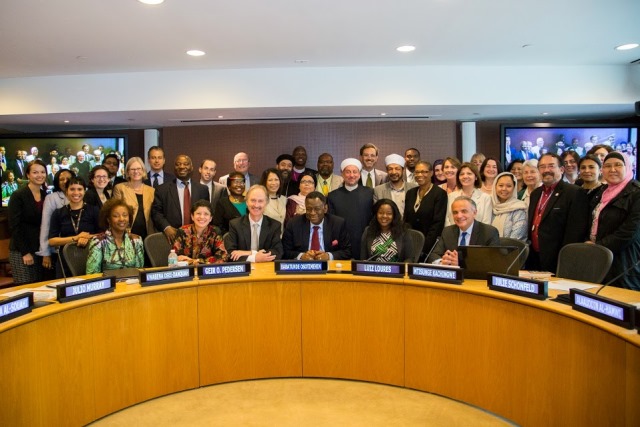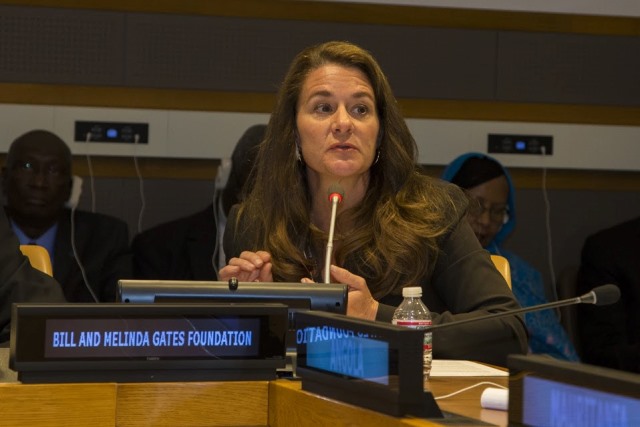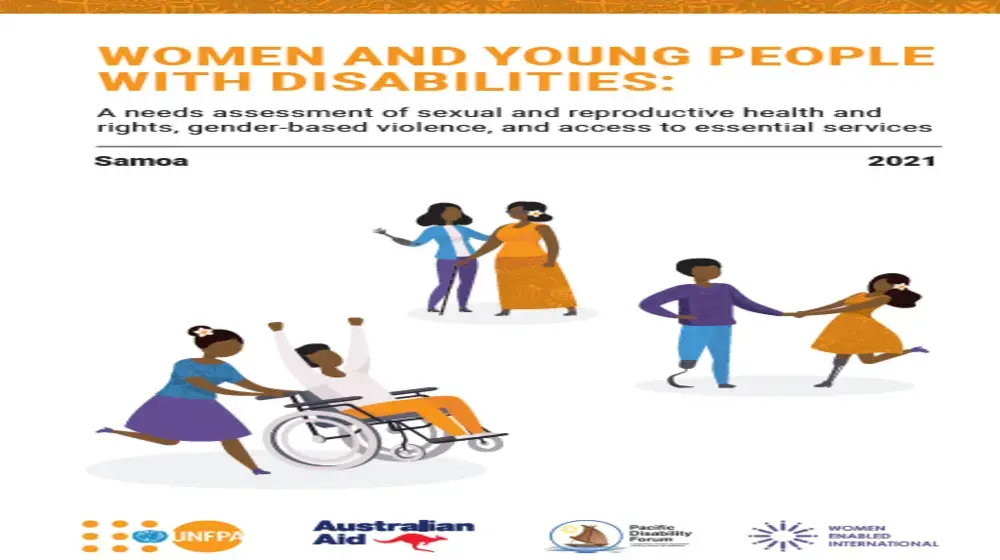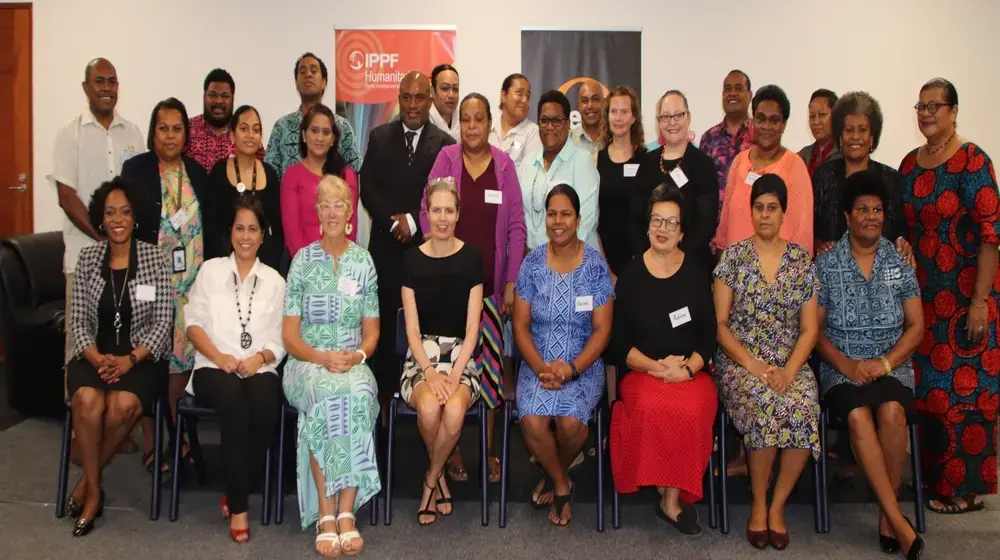MORE than 120 world leaders including presidents, heads of governments, ministers and senior officials and representatives of civil society emphatically affirmed two days ago the critical difference the development agenda carried out by the United Nations Population Fund (UNFPA) has made in the lives of the people they represented, particularly women and girls.
Acknowledging progress so far particularly successful platforms used by various countries such as the establishment and progress of schools for husbands or the review of education curriculums to ensure comprehensive sexuality education components, United Nations (UN) member states couldn't have been more unequivocal.
The special session on the follow-up to the implementation of the Program of Action of the ICPD (International Conference on Population and Development) beyond 2014 concluded after midnight September 23, after 11 hours of deliberations.
While the 69th session of the UN General Assembly began yesterday in New York, agencies such as the UNFPA organise side events where specific issues are discussed. The UNFPA Pacific Sub-Regional Office supported Pacific representation to this special session on the ICPD program of action implementation progress review, including presidents, prime ministers and senior government officials, and to a gathering of faith-based leaders.

"We invite member states and it is their prerogative whether they attend or not and we have been very pleased with the high acceptance," UNFPA Pacific director and representative Dr Laurent Zessler said. "The Pacific region established its united voice in support of our work, particularly in the area of sexual and reproductive health and rights, during an earlier Asia and the Pacific meeting in 2013."
Another event the UNFPA was involved in, as a partner in the project that was discussed, was the high-level panel on the potential of young people to drive economic growth in the Sahel region of Africa. The panel included the President of Chad Idriss Déby, President of Côte d'Ivoire Alassane Ouattara, President of Niger Mahamadou Issoufou, UNFPA executive director Dr Babatunde Osotimehin, World Bank Vice-President Makhtar Diop, and Melinda Gates, co-founder of the Bill & Melinda Gates Foundation.
The panel emphasised the importance of real investments in the education of young girls, of ensuring the provision of and access to sexual and reproductive health for youth and adolescents, and women's empowerment in our counties as a game-changer in relation to development progress.
The panel spoke of how investing in the skills and rights of young people, particularly adolescent girls, would also be critical if countries were to take advantage of the demographic dividend. When fertility rates fall to low levels, consequently decreasing the number of children, this leads to a proportionally higher working-age population. Having fewer children frees up money that would otherwise be invested in them which for countries translates to increased opportunities for investment in economic development - this period is often described as the demographic dividend.
While discussion may have centred on African countries, it is important we do not dismiss it because of its seeming irrelevance to our ocean of islands, it may be prudent to understand their reality as we may identify regional relevance woven in the sub-texts of such discussions. Demographic dividends played a major role in the economic ascension of Asian countries like Korea and India between the 1960s and 2000s.
Dividends however are not automatic, it requires a healthy, educated workforce with access to decent jobs. This means investing in the health, rights and skills of young people, especially adolescent girls, who remain marginalised in large numbers.
For the Pacific island countries where the youth (15-24 years) population ranges from 14 (Palau) to 22 per cent (Federated States of Micronesia), the demographic dividend can be an invaluable opportunity for change and as Ms Gates reminded participants of and listeners to the high-level panel: "Evidence shows that the demographic transition can happen in one generation but it is only going to happen if we make significant investment."
Another important event the UNFPA organised was the two-day gathering of more than 40 faith leaders representing the Baha'i, Buddhist, Christian, Hindu, Jewish and Muslim faiths who issued a rousing call to action on sexual and reproductive health and reproductive rights: "We the people of faith call upon the United Nations systems and member states to ensure that sexual and reproductive health and reproductive rights be made central to the post-2015 sustainable development agenda".
Their statement entitled "A Call to Action: Faith for Sexual and Reproductive Health and Reproductive Rights" repudiates abuses that undermine human rights which were often attributed to religion: "Not in our name should any mother die while giving birth," it says. "Not in our name should any girl, boy, woman or man be abused, violated or killed. Not in our name should a girl child be deprived of her education, be married, be harmed or abused. Not in our name should anyone be denied access to basic health care, nor should a child or adolescent be denied knowledge of and care for his/her body. Not in our name should any young person be denied their full human rights."

For the UNFPA global family the various deliberations emphasises the work that is yet to be done to address challenges that continue to be barriers to improved lives of ordinary people particularly in relation to population and development dynamics - gender equality, youth, family planning, maternal health and data for development.
Having our mandate areas reaffirmed by world leaders and our partners marks the beginning of another chapter.
"The General Assembly will continue its deliberations in the next week. For us we will continue to work with our partners which include Member States, civil society actors, our donors and very importantly the people of the this region to cement the gains we have made over the past 20 years," Dr Zessler said.
"It is imperative that we continue the focus on women, adolescent girls and all young people, on dignity and human rights, on addressing discrimination and inequality and on achieving universal access to sexual and reproductive health and ensuring reproductive rights for all."
For more information, please contact: Ariela Zibiah Email: zibiah@unfpa.org Landline: +679 3230711 Mobile: +679 9991697




